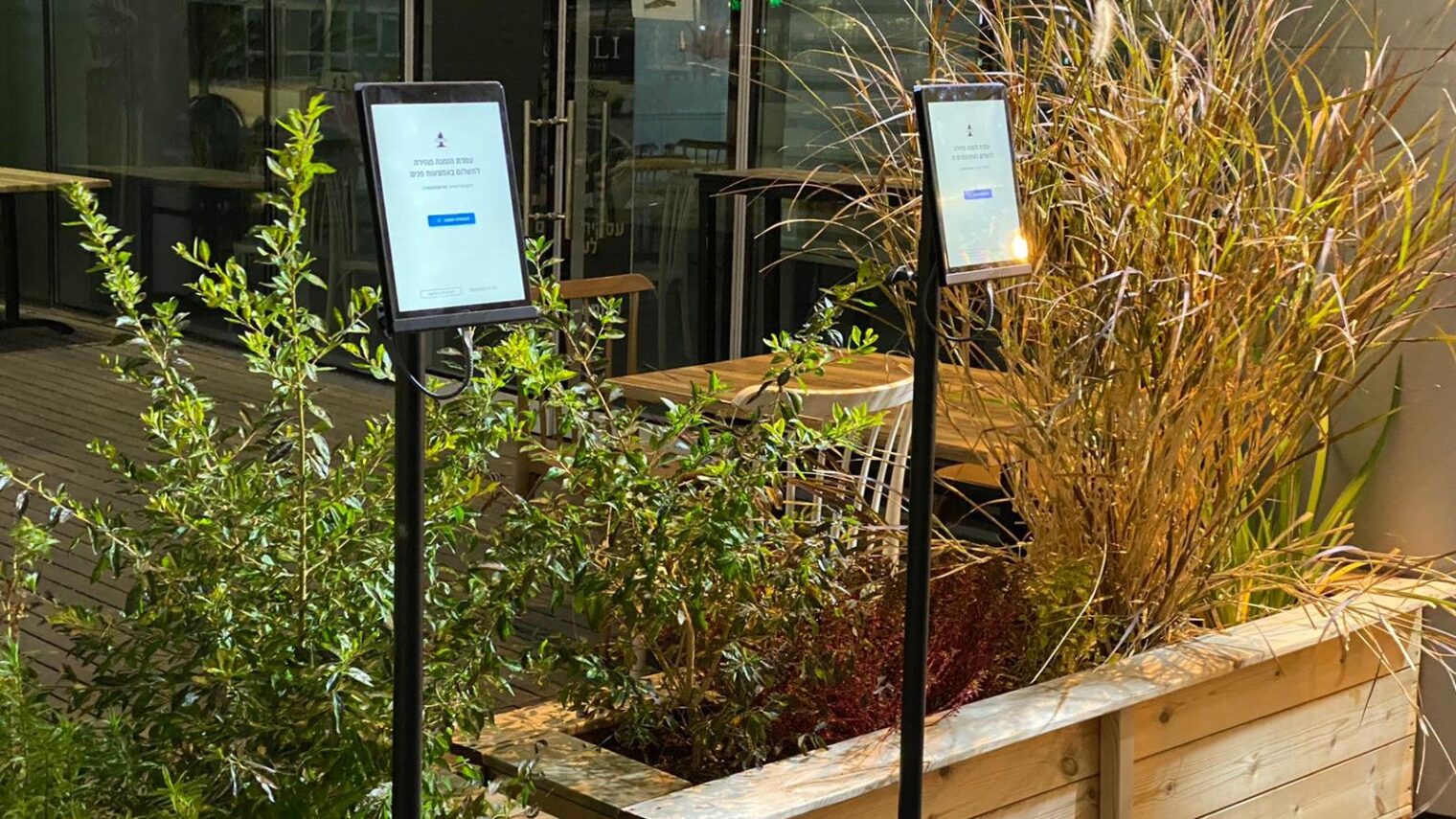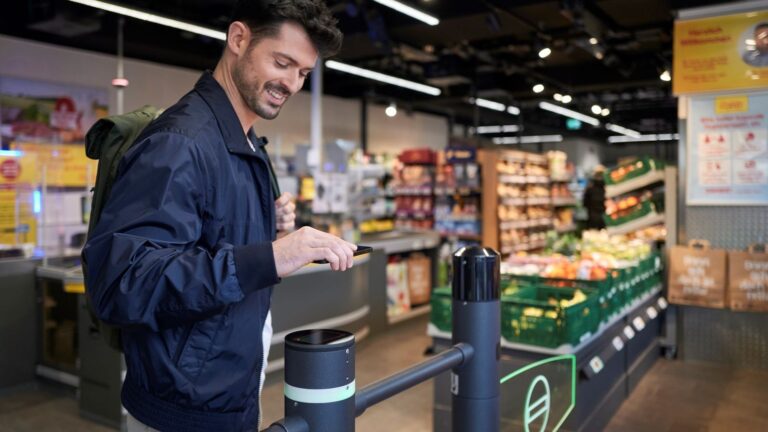Many people we know have a favorite food joint right by their office. So favorite, in fact, that they can recite all the ingredients in their preferred salad and will always remember to ask to swap out the cilantro and skip the onions.
But how great would it be if they didn’t need to recite their custom order day in, day out? And not even have to pull out a wallet to pay?
This reality holds true for some 100 people enjoying lunch a few floors down from their office in the coastal Israeli city of Holon. This complex is also home to Preciate, an Israeli startup whose self-service kiosks recognize customers and enable a seamless and customized experience.

“I’ve seen people going down to eat without a wallet because they don’t need one. That’s pretty cool,” says Eyal Fisher, Preciate’s cofounder and CEO.
Fisher was formerly the head of the cyber division unit at the Israeli military intelligence’s prestigious Unit 8200. He came to the world of customer engagement platforms after having worked on facial recognition for access control in the security industry.
“We were looking to do something that brings ROI [return on investment] to the customers who bought the system and not just to improve security or ease,” he says of the journey. “We were looking for a market that’s not security, that’s productive, and that we could help make much more money. That’s how we got to retail.”
Pay by face
Preciate, which Fisher cofounded with Israeli tech giant Avi Naor, has two main products.
The first is a system that identifies repeat customers by placing a camera at the storefront and checking if the person entering is a return customer, and if so, what they previously bought and what assistance they may require. That information travels to a dedicated app on the sales associate’s phone.
Preciate was working with high-end companies in the US fashion industry before Covid broke out, and even managed to continue this work to some extent during the pandemic.
But because regulations prevented people from entering brick-and-mortar stores, and Preciate’s leadership could no longer travel to the US, the company pivoted slightly to focus on its second product – pay by face.
Here, the company developed a self-service kiosk that recognizes the customer that walks up to it and gives him or her a personal experience. Traditional kiosks, Fisher says, are missing out by not knowing who’s standing in front of them.

“The kiosk doesn’t know who you are, so you’re getting the same information and the same options as any other person. That’s unreasonable. It doesn’t make sense that they don’t recognize you before you begin the customer journey but only at its end,” he says.
“We make identification and payment possible using face recognition, and then the customer gets a personal and more pleasant experience. It’s contactless; you don’t need to take out a credit card or phone,” he adds.
Customers sign up separately for each restaurant they patronize that has the service available.
“You sign up with one single selfie, taken on your personal phone. You don’t need to download any app, but simply to press a link, fill out personal details, consent and enter payment options if you want,” Fisher says.
‘Let’s give this a try’
Covid demonstrated the necessity of front-of-house kiosks at a time when customers are prohibited from entering restaurants. And retailers in Israel, Fisher says, are open to new possibilities.
“All the restaurants and retailers that I met adopt technologies and solutions very quickly,” he says. “Almost everyone I speak with says, ‘Let’s give this a try.’”
Based on the new lunchtime habits of Fisher’s neighbors at the Holon business center, customers are pleased– some 700 people signed up, 100 of them use the service daily and only one person has opted out in the past three months.
“No one else can use the payment method because of your face, so it’s more secure than other payment methods,” Fisher notes. “A wallet can be taken; your face can’t.”
At the time of this writing, Preciate was rolling out its self-service kiosks to a few restaurant chains in Tel Aviv, which are now beginning to implement the new service. Looking forward, Preciate is planning to return to the US and offer its smart self-service kiosks to quick-service restaurants there.
“That’s where we bring the highest value because the number of repeating customers is the greatest,” Fisher says, noting that people always return to the same grocery store or the same café, and usually order the same items.
And yet, Fisher says that he’s glad of Preciate’s initial focus on the Israeli market thanks to the coronavirus crisis.
“When you put together these nice opportunities with the substantial human resources Israel offers, it’s a very nice combination. I’m very much enjoying the opportunities it’s created for us,” he says. “I think that had it not been for corona we would have hardly dealt with Israel at all, and it’s been a very positive experience.”
For more information, click here
















